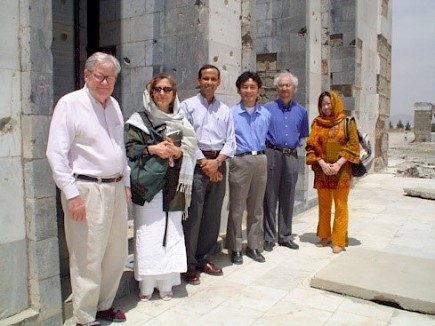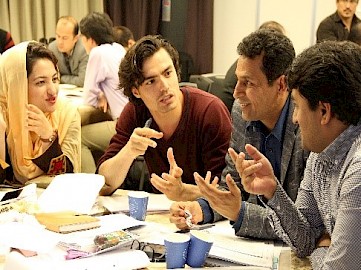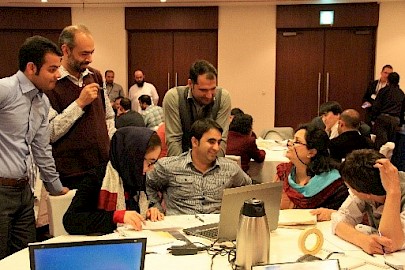“This was a fantastic opportunity for me. I learned very much not only from the workshop but also from other activities and the working culture of Japan." Fellow, AF Class of 2008
"I am managing many programmes in the water and power sectors where the leadership and management skills I have learned (in UNITAR) greatly help me in my work." Coach, 2008
“I feel I am a different person after the Fellowship. I see a change in me. I have a vision for the future. I learned not to wait for the opportunity but try to create it. Don’t wait for the chance; create it! My vision is broader now.” Fellow, AF Class of 2009

The UNITAR Hiroshima Fellowship for Afghanistan (AF), one of the original flagship programs of the newly established Hiroshima Office of UNITAR, was conceived as an annual year-long executive training that aimed to build capacity and enhanced leadership, management and professional skills of a core group of senior government officials, academics and practitioners from Afghanistan.
From its launch in 2003 to its closing, the Fellowship completed fifteen cycles for around 470 participants. The Fellowship sought its inspiration from the experiences of war and reconstruction in Japan and Hiroshima, and was designed after numerous discussions with members of the Afghan government, civil society and international institutions working in the country, during a first fact-finding mission to Afghanistan in 2002. The research team included the late Ambassador Jonathan Moore, a former US refugees coordinator and representative to the United Nations, and Professor Akio Inoue, of Tenri University, and was led by Nassrine Azimi, at the time team-leader for the Hiroshima Office project.
The initial curriculum design for the Fellowship was led by Humaira Khan-Kamal, with input from numerous partners and experts. They aimed to address the multitude of important themes related to the effective governance of Afghanistan by and for Afghan nationals themselves, a crucial requirement for the future of the nation. The Fellowship sought to contribute to sustainable learning at the workplace and to build on the capacity of the Afghan civil service itself, to rely on its own abilities and to lessen its need and dependence on the human resources and expertise provided by the international community.
The curriculum included:
- Organizational Development
- Organizational Change
- Project Design
- Project Management
- Human Resource Development
- Human Resource Management
- Accounting and Budgeting
- Leading and Mentoring Teams for Development and Change
- Team-building and Teamwork
- Communication Skills
- Strategic Planning
The Fellowship sought to contribute in particular to sustainable learning in the workplace and to build on the capacity of the Afghan civil service as it worked to rely on its own abilities and to lessen its need to depend on the human resources and expertise provided by the international community.
Learning Objectives
The Fellowship pursued two long-term objectives:
a. To support the Fellows in the application of their new knowledge and greater confidence in the transformation of their respective ministries and organizations through:
- Achievement of mandates and objectives despite limited resources;
- Facilitating effective team-work and coordination within the organization through mentoring and team-building;
- Networking and collaborating with stakeholders and other organizations;
- Leadership and management of capacity building;
b. To learn from the experiences of Hiroshima, to build a committed and highly capable Fellowship community in Afghanistan which can serve as a resource for planning and implementing capacity-building and training activities at the local and national levels.
“We all have crucial roles in our organizations. We know we have responsibility, but we must feel it. We must bring change within our organization, transform our commitment to the others in the organization. We need that for the reconstruction of Afghanistan.” Fellow, AF Class of 2009






